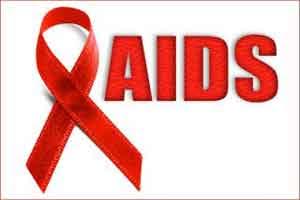- Home
- Medical news & Guidelines
- Anesthesiology
- Cardiology and CTVS
- Critical Care
- Dentistry
- Dermatology
- Diabetes and Endocrinology
- ENT
- Gastroenterology
- Medicine
- Nephrology
- Neurology
- Obstretics-Gynaecology
- Oncology
- Ophthalmology
- Orthopaedics
- Pediatrics-Neonatology
- Psychiatry
- Pulmonology
- Radiology
- Surgery
- Urology
- Laboratory Medicine
- Diet
- Nursing
- Paramedical
- Physiotherapy
- Health news
- Fact Check
- Bone Health Fact Check
- Brain Health Fact Check
- Cancer Related Fact Check
- Child Care Fact Check
- Dental and oral health fact check
- Diabetes and metabolic health fact check
- Diet and Nutrition Fact Check
- Eye and ENT Care Fact Check
- Fitness fact check
- Gut health fact check
- Heart health fact check
- Kidney health fact check
- Medical education fact check
- Men's health fact check
- Respiratory fact check
- Skin and hair care fact check
- Vaccine and Immunization fact check
- Women's health fact check
- AYUSH
- State News
- Andaman and Nicobar Islands
- Andhra Pradesh
- Arunachal Pradesh
- Assam
- Bihar
- Chandigarh
- Chattisgarh
- Dadra and Nagar Haveli
- Daman and Diu
- Delhi
- Goa
- Gujarat
- Haryana
- Himachal Pradesh
- Jammu & Kashmir
- Jharkhand
- Karnataka
- Kerala
- Ladakh
- Lakshadweep
- Madhya Pradesh
- Maharashtra
- Manipur
- Meghalaya
- Mizoram
- Nagaland
- Odisha
- Puducherry
- Punjab
- Rajasthan
- Sikkim
- Tamil Nadu
- Telangana
- Tripura
- Uttar Pradesh
- Uttrakhand
- West Bengal
- Medical Education
- Industry
End AIDS by 2030: US Embassy

With a resolve to "end AIDS" by 2030, the US Embassy held a panel discussion on the auto-immune disease at the American Center Library here.
Mary Kay Carlson, deputy chief of Mission at US Embassy, said India saw a decline of 32 per cent in number of new infections of AIDS virus in 2015 compared to 2007.
"In the last 25 years, the AIDS control programme has grown and the number of new infections have been brought down by 32 per cent and AIDS related deaths by over 50 per cent.
"No other country in the world has been able to achieve that," he said.
Rao added that still more than one million people suspected to be infected by AIDS are undiagnosed.
"People need to come forward and get themselves tested so early treatment could be provided," he said.
Titled "Ending AIDS by 2030: Test and Start treatment", the event was organised in collaboration with the India team of the US President's Emergency Plan for AIDS Relief (PEPFAR).
Public health specialist Sukarma Tanwar said there were new technologies like antiretroviral drugs which lower viral load in patients so that the disease does not get transmitted.
"However, HIV prevention should be delivered as a comprehensive package including bio-medical interventions, behavioural interventions and infrastructural interventions to effectively deal with AIDS," he added.
Simran Shaikh from India HIV/AIDS Alliance said that there is a need to implement early testing and for reducing the stigma attached to HIV treatment.


